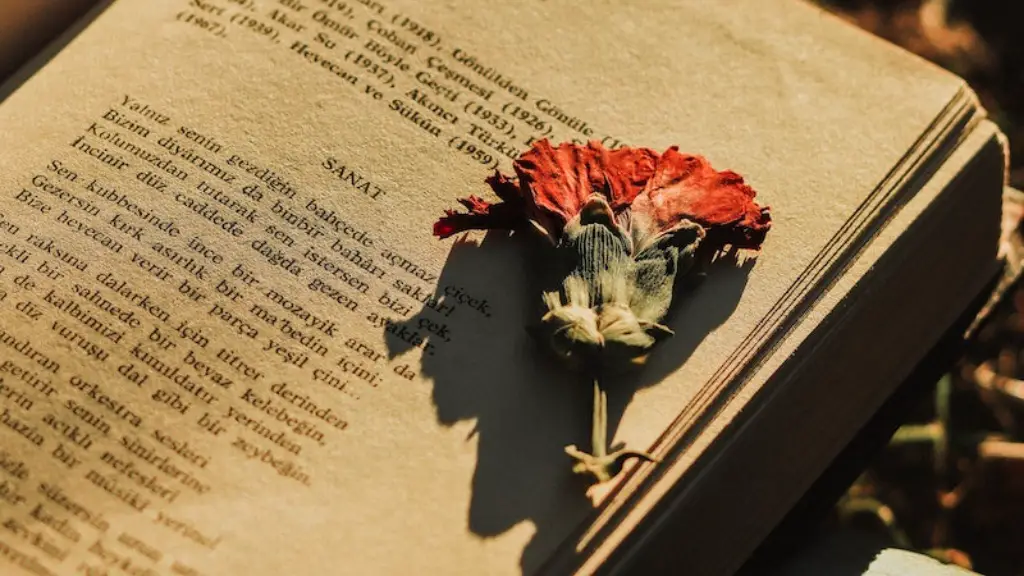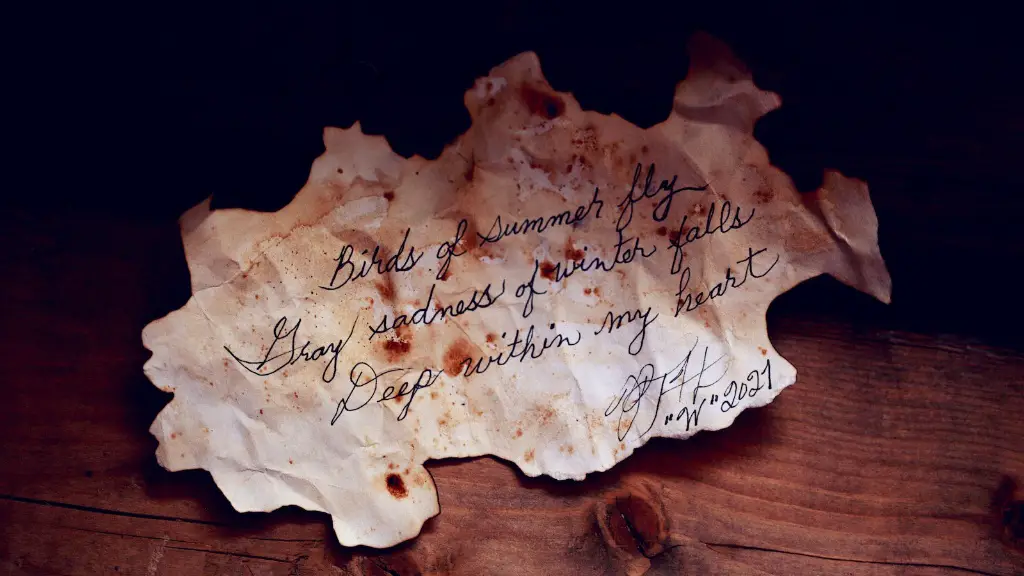History of Poetry Month in the US
April is known as the month of poets and poetry in the United States. Many other countries have held their own celebrations of poetry for decades, but April was the first month declared a national celebration of poetry in the US. Poetry Month was officially created in 1996 after the Academy of American Poets started a campaign. The campaign spread quickly from state to state, garnering support from literary organizations and schools. April has since become the month for celebrating national poets and poetry around the country.
But how does Poetry Month take shape? It is celebrated in a myriad of ways, from large-scale festivals to small community readings. Poets, educators, and institutions organize reading events, lectures, and workshops to give readers insights into the craft and experience of writing or reading poetry. Libraries, universities, and bookstores celebrate the month with special readings, while other organizations join in by offering special workshops and courses. Cities, too, have hopped onboard this creative wave with special literary fairs and art gallery exhibitions. All of these celebrations have contributed to the growing popularity of Poetry Month, and helped to make it a growing tradition across the US.
Poetry Month has been rapidly gaining popularity since the start of the twenty-first century, and literary organizations have put forth tremendous efforts to make it the celebrated event it is today. In 2016, the Academy of American Poets organized the Poem in Your Pocket Day, which proved an enormous success. Participants were encouraged to give out poems to their family, friends, and colleagues throughout the day. This spawned a wave of more poetry-centered activities, like the Poet Laureate Program, which sends distinguished poets around the country to encourage creative writing in students.
True to the celebratory spirit of Poetry Month, many writers, poets, and scholars have taken this opportunity to highlight the work of unsung poets and new voices in the industry. Poetry Month is a chance to recognize famous poets and works, as well as support the upcoming ones. Organizations such as The Poetry Society of America and Cave Canem Foundation have been instrumental in opening doors for emerging poets, and those poets – and their works – have been celebrated alongside the proven greats during Poetry Month.
These celebrations extend further than libraries and universities. Every year, publications, radio shows, and radio stations around the country host special readings and excerpts from famous works. These events allow readers to gain insights from the authors themselves, as well as open their minds to new voices in the literary landscape.
Congress also pays tribute to Poetry Month every year, passing a resolution that officially declares April as National Poetry Month. This recognition brings the celebrations to the nation’s capital, allowing policymakers and citizens to hear and learn about poetry in the halls of power.
Choosing a Form of Poetry
Choosing the form of poetry to write can be challenging, as there are many forms to choose from, such as sonnets, blank verse, odes, epics, and limericks. Many poets start with one form, but explore others over time. To select a form, it is essential to understand how different forms differ from one another. Sonnets, for example, rely on structured, ten-line verse. Blank verse, on the other hand, is structured into unrhymed lines. Odes are poetic works traditionally written to address a particular subject, whereas a limerick is primarily used for humorous purposes. Whatever form a poet chooses, there are technical elements to be aware of, such as rhyme schemes and metrical feet.
Most importantly, it is essential to recognize how a particular form can influence the content of the poem, as well as its tone. For instance, the sonnet form is often associated with courtly love, and is commonly used by writers to express their deepest emotions. Epics, on the other hand, are larger, grandiose poems associated with heroic exploits, while odes are often beautiful works that explore emotional topics. Whichever form a poet decides to choose, they should understand the elements of the form and be aware of the different feelings and experiences each one can evoke.
Ideally, the best way to start writing poetry is to practice one particular form and gain a solid understanding of its structures and peculiarities. Mastering a particular form gives a poet the freedom to experiment in more diverse styles and topics. Additionally, exploring various forms of poetry from different eras and areas around the world can help to give new insight and ideas to one’s work and keep the art form from growing stale.
Joining a Writing Group
Poets can benefit significantly by joining a writing group or a class for writers. Writing groups offer a unique space for poets to get advice, share their successes and struggles in the craft, and acquire critiques on their works. Members of these groups can interact with established writers and gain insight into the industry. Additionally, members can keep each other accountable when it comes to writing and allow each other to challenge themselves in the craft.
Writing classes, on the other hand, help poets develop their writing abilities and improve their craft. Classes offer poets the invaluable opportunity to workshop their pieces with other poets, editors, and authors. Additionally, teachers and instructors can bring different perspectives to the table, allowing poets to see their works in a new light and grow their confidence. Even though these classes can be taken either independently or in groups, many writers find the latter to be more beneficial since there is more exchange of ideas and opinions.
Overall, writing classes, writing clinics, and writing groups are great spaces for poets to collaborate, promote their work, and engage the public in their art. For poets looking to strengthen their craft, joining such a group or class can be immensely helpful in understanding the complexities of the craft.
Writing Poetry Now
With April fast approaching, many poets are preparing for a month of celebration and engagement with their craft. Though the writing of poetry requires dedication, it is still an art form that can be broken down into individual steps. The process of writing it starts with the selection of a single form or combination of forms, and then moves to the construction of a successful poem. After that, it is important to fine-tune the poem and make sure that it reads smoothly for audiences.
Creating a poem does not happen overnight. Poets should build on their fundamentals and continue to practice different forms, ideas, and topics. It is vital to recognize that poetry is an intimate art form; readers are familiar with writing that addresses one’s deepest thoughts and feelings. Therefore, it is essential to put a lot of thought and emotion into the craft.
Aside from the technical aspects of creating poetry, other aspects such as marketing and promotion are equally important. Many poets place a stronger emphasis on the creative part of their works, but the actual steps of promotion and sharing their works are just as important. Events, readings, and other engagements are the best way to show the world the uniqueness of one’s work. Engaging the public in one’s craft is the most rewarding step in completing the writing process.
Public Readings
Many poets and writers find the opportunity to read their works publicly rewarding. Public readings are events where one can go to read poems and share stories, and gain recognition and appreciation for their works. Poets can gain a greater understanding of technique, theme, and rhythm from reading their work, as well as inspire others to pursue the same passion.
Public readings are commonly held by universities, libraries, bookstores, and community centers. As Poetry Month draws closer, many of these establishments start to host their own readings as part of the celebration, giving poets the chance to showcase their work among their peers.
Reading one’s work gives the poet the opportunity to gain recognition among the literary community and society at large. It is a great way to meet other poets and appreciate the art form with others. Moreover, public readings are celebrated occasions, giving musicians, poets, and authors the chance to boost their confidence, meet with publishers, and revel in the knowledge that they are appreciated by their contemporaries.
Finding Communities Online
Like most industries, the literary and poetry worlds have experienced a technological revolution, with many poets opting to share and promote their works online. Platforms such as Twitter, blogs, and websites have enabled poets and writers to access a larger audience, as well as create and engage with others in the community. This has been especially crucial for poets, who depend on the support of fans and readers to secure their works’ longevity.
Aside from its promotional capabilities, the internet is also a great source of information for poets. There are a plethora of poetry websites and blogs that provide up-to-date information on the latest trends and topics in the industry, as well as tips and advice on improving one’s craft. A poet can also find online writing groups, support networks, and online classes, allowing them to discuss and collaborate with poets from different geographical areas.
The internet has been instrumental in facilitating the growth of the poetry community, particularly over the past several years as the advent of social media has opened the door to a new realm of opportunities. Because of this, poets have access to a larger and more diverse audience and can foster meaningful conversations with people from all over the world.
Final Thoughts
April has become the established month for celebrating poets and poetry around the United States, honoring the works of established poets, as well as providing a platform for upcoming ones. Poetry Month is celebrated in a myriad of ways, from readings and lectures to workshops and art gallery exhibitions. Whether it is through readings and publications, writing groups and classes, or public readings, it is an opportunity to engage the public in the art form and bolster the career of poets. Additionally, the digital age has offered new ways for poets to share and promote their works, connecting them with a larger and more diverse audience.





